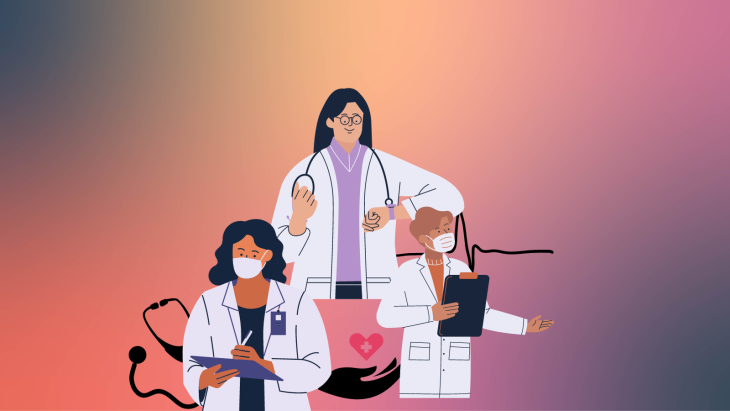Categories
Recent Posts
Popular
Recent Posts
- I broke up with my partner, but now I am having doubts. Did I do it out of the right reasons or was I just being fearful?
- My Quick Temper Pushes People Away. What Do I Do To Manage My Anger?
- How does noise affect my mental health?
- I want to be a better problem solver. What is a step by step approach?
- Escapism. When is it healthy? When is it damaging?
Most Popular
How To Prepare for a Career as a Physician Assistant?

How To Prepare for a Career as a Physician Assistant?
Starting a Physician Assistant (PA) career can be thrilling and challenging. PAs perform a crucial
part in healthcare, working with physicians to offer high-quality patient care. Aspiring PAs must
follow a thorough and well-planned route that includes education, clinical experience, and
personal growth to prepare for this fulfilling career.
Academic Foundation:
Preparing for a profession as a physician assistant begins with establishing a solid academic
foundation. A bachelor's degree in science, such as biology or chemistry, is usually required for
admission to PA programs. Maintaining a competitive GPA is essential as PA programs tend to be
highly competitive and can have strict academic prerequisites. Furthermore, the anatomy,
physiology, and medical terminology coursework will be a strong foundation for further study in
the PA program.
Programs for PAs and Certification:
It's critical to research and choose the best program based on learning preferences, location
decisions, and personal goals. Prerequisite courses, prior healthcare experience, and
recommendation letters are often included in admissions criteria.
Master's degree in Physician Assistant Studies upon completion of a PA program. Students
acquire theoretical knowledge and practical skills through classroom lectures, clinical rotations,
and hands-on experiences throughout this intensive learning phase. Approaching the program
with dedication, a strong work ethic, and effective time management abilities is essential.
Experience in Clinical Practice:
Practical clinical experience is essential to become a PA. A particular number of healthcare hours,
usually obtained from direct patient care positions like medical assistant or emergency medical
technician, is sometimes required of candidates for PA programs. Substantial clinical experience,
besides fulfilling program criteria, improves interpersonal skills, promotes a better comprehension
of patient care, and offers insightful knowledge of the healthcare system.
Mentoring and networking:
In preparation for a profession as a physician assistant, it is vital to develop connections within
the healthcare community. Connecting with practicing doctors, PAs, and other medical
professionals may give you a wide range of information about the industry. Mentoring from
experienced PAs can provide invaluable insight, counsel, and a deeper understanding of the field.
Engage in conferences, workshops, and other events to broaden your professional connections
and keep up with current industry developments.
Licensing and Certification:
Graduates of PA programs are required to sit for the National Commission on Certification of
Physician Assistants (NCCPA) Physician Assistant National Certifying Exam (PANCE). Getting
through this test is the first step to PA certification. Consequently, to practice, one must get a state
license. Every state has different licensing requirements. Thus, it would be best to acquaint
yourself with the specific regulations for the chosen practice location.
In conclusion, a comprehensive strategy combining clinical experience, networking, academic
achievement, and certification to prepare for a career as a physician assistant. It requires
commitment, grit, and a sincere love for the medical field. Aspiring PAs should embrace the
journey enthusiastically, looking for possibilities for continual improvement and keeping up with
developments in the business. By following this thorough guidance, people may enter the exciting
area of physician assistant and become competent, caring healthcare providers.
Starting a Physician Assistant (PA) career can be thrilling and challenging. PAs perform a crucial
part in healthcare, working with physicians to offer high-quality patient care. Aspiring PAs must
follow a thorough and well-planned route that includes education, clinical experience, and
personal growth to prepare for this fulfilling career.
Academic Foundation:
Preparing for a profession as a physician assistant begins with establishing a solid academic
foundation. A bachelor's degree in science, such as biology or chemistry, is usually required for
admission to PA programs. Maintaining a competitive GPA is essential as PA programs tend to be
highly competitive and can have strict academic prerequisites. Furthermore, the anatomy,
physiology, and medical terminology coursework will be a strong foundation for further study in
the PA program.
Programs for PAs and Certification:
It's critical to research and choose the best program based on learning preferences, location
decisions, and personal goals. Prerequisite courses, prior healthcare experience, and
recommendation letters are often included in admissions criteria.
Master's degree in Physician Assistant Studies upon completion of a PA program. Students
acquire theoretical knowledge and practical skills through classroom lectures, clinical rotations,
and hands-on experiences throughout this intensive learning phase. Approaching the program
with dedication, a strong work ethic, and effective time management abilities is essential.
Experience in Clinical Practice:
Practical clinical experience is essential to become a PA. A particular number of healthcare hours,
usually obtained from direct patient care positions like medical assistant or emergency medical
technician, is sometimes required of candidates for PA programs. Substantial clinical experience,
besides fulfilling program criteria, improves interpersonal skills, promotes a better comprehension
of patient care, and offers insightful knowledge of the healthcare system.
Mentoring and networking:
In preparation for a profession as a physician assistant, it is vital to develop connections within
the healthcare community. Connecting with practicing doctors, PAs, and other medical
professionals may give you a wide range of information about the industry. Mentoring from
experienced PAs can provide invaluable insight, counsel, and a deeper understanding of the field.
Engage in conferences, workshops, and other events to broaden your professional connections
and keep up with current industry developments.
Licensing and Certification:
Graduates of PA programs are required to sit for the National Commission on Certification of
Physician Assistants (NCCPA) Physician Assistant National Certifying Exam (PANCE). Getting
through this test is the first step to PA certification. Consequently, to practice, one must get a state
license. Every state has different licensing requirements. Thus, it would be best to acquaint
yourself with the specific regulations for the chosen practice location.
In conclusion, a comprehensive strategy combining clinical experience, networking, academic
achievement, and certification to prepare for a career as a physician assistant. It requires
commitment, grit, and a sincere love for the medical field. Aspiring PAs should embrace the
journey enthusiastically, looking for possibilities for continual improvement and keeping up with
developments in the business. By following this thorough guidance, people may enter the exciting
area of physician assistant and become competent, caring healthcare providers.







Comments